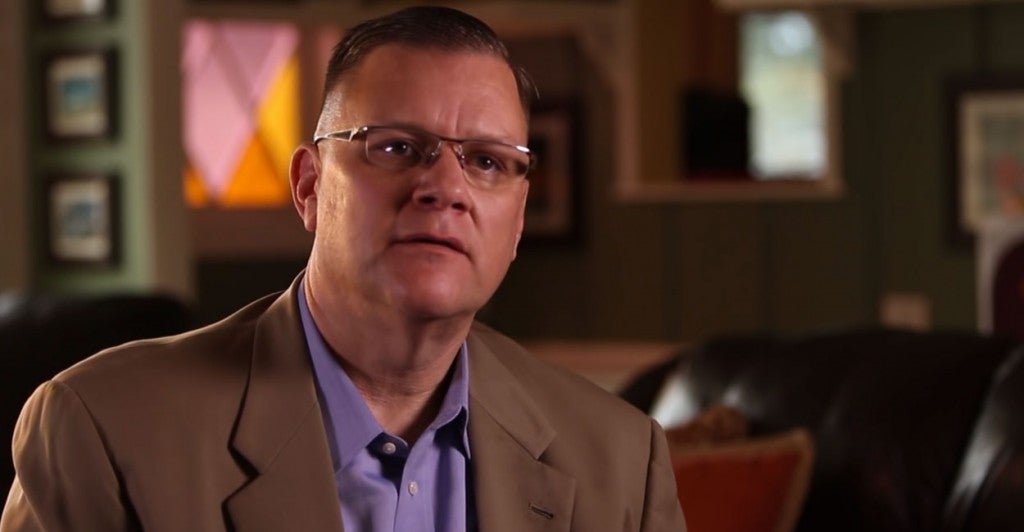While the nation debates whether Christian business owners should be forced by the government to cater same-sex marriages, the military is embroiled in its own dispute over religious freedom.
In two high-profile cases, military chaplains have been punished for citing their religious beliefs during private counseling sessions and other official events, sparking questions about what military chaplains are allowed to say in the name of faith.
Last fall, Capt. Joe Lawhorn was punished for making references to the Bible and distributing a handout that cited the Christian scriptures during a suicide prevention seminar at the University of North Georgia.
>>> Read More: Military Chaplain Punished for Referencing Bible Speaks Out
The most recent example involves Lt. Cmdr. Wes Modder, a decorated chaplain of the Base Chapel Naval Weapons Station at Joint Base in South Carolina. Modder was removed from his unit after several of his fellow service members in the Navy complained about his views on homosexuality and sexual relationships outside of marriage.
Among the allegations, the Navy wrote in a Feb. 17 “Detachment for Cause” that Modder told students, “homosexuality was wrong,” insinuated that he had the ability “to ‘save’ gay people,” and “berated a pregnant student for becoming pregnant while not married.”
The Navy contends that Modder “failed to show tolerance” and that on multiple occasions, “he discriminated against students who were of different faiths and backgrounds.”

Lt. Cmdr. Wes Modder comes under fire for his religious beliefs about marriage and sexuality. (Photo: Liberty Institute)
>>> Read More: Navy Chaplain Removed From Unit for Teaching ‘Biblical Truth’ on Sexuality
But others argue that the military is being intolerant of Modder’s beliefs.
Rep. Doug Collins, R-Ga., the only U.S. congressman to also serve as an Air Force Reserve chaplain, believes the military has gone too far in punishing Modder and others like him.
“It’s First Amendment rights for a reason,” Collins told The Daily Signal in an exclusive interview. “Not because you agree with it.”
Last week, Collins, along with 34 other members of Congress, came to Modder’s defense in a letter demanding that the Navy “provide information on the nature of the accusations and investigations” and “confirmation as to what steps the Navy is taking to reinforce the policies and protections in place for service members and chaplains to freely exercise their religiously-informed beliefs.”
Though Collins contends that chaplains have a responsibility to “self-monitor” their language, the congressman also says that Modder’s beliefs shouldn’t come as a surprise to those seeking his counsel.
“He’s not going to give an atheist perspective if he has a cross on his uniform,” Collins said. “That’s just not going to happen and it shouldn’t be expected to happen.”
Former Army Capt. Jason Torpy, president of the Military Association of Atheists and Freethinkers, a non-profit organization representing “atheists and humanists in the military,” has been an outspoken critic of Modder’s case.
He said that while a chaplain “shouldn’t have to advocate for somebody else’s beliefs,” they are required to serve in a pluralistic religious environment.
“Nobody’s expecting them to come in and say, ‘Hey, being gay is awesome.’” Instead, Torpy said:
Have a civil, compassionate and professional discussion using all of the professional chaplain skills that you have. That’s the reasonable expectation. It’s unreasonable for people to browbeat people or belittle them in any context.
Collins, who served a tour in Iraq as a military chaplain, believes that Modder and others like him are being used to send a “chilling effect” throughout the military.
“They’re being told that they can’t say certain things, which are all founded within their faith tenets,” he said. “It’s been very disturbing to me.”
Modder’s attorney, Michael Berry, director of military affairs for the Liberty Institute, maintains that chaplains have a legal right to cite their faith in official duty.
In response to the Supreme Court’s decision in City of Boerne v. Flores, which decided that the Religious Freedom Restoration Act (RFRA) only applies to the federal government, Congress included a provision in the National Defense Authorization Act that incorporates RFRA’s strict scrutiny standard as the legal measure that the Defense Department must satisfy in order to deny religious accommodation requests.
“In other words, Congress directed the [Defense Department] to apply [Religious Freedom Restoration Act] to the military, which it did in January of 2014,” Berry said.
For the same reason, 20 states—including Indiana—have passed their own religious freedom laws.
“Congress made it very clear that service members do not lose their First Amendment religious liberty,” Berry said. “This means military commanders are going to have a much more difficult time justifying their hostility to religious freedom. It also means those commanders are often breaking the law when they discriminate against service members of faith.”
Torpy, on the other hand, maintains Modder has a right to those beliefs but a responsibility as a military chaplain to accommodate all.
Navy Chaplain Letter 03.30.2015
